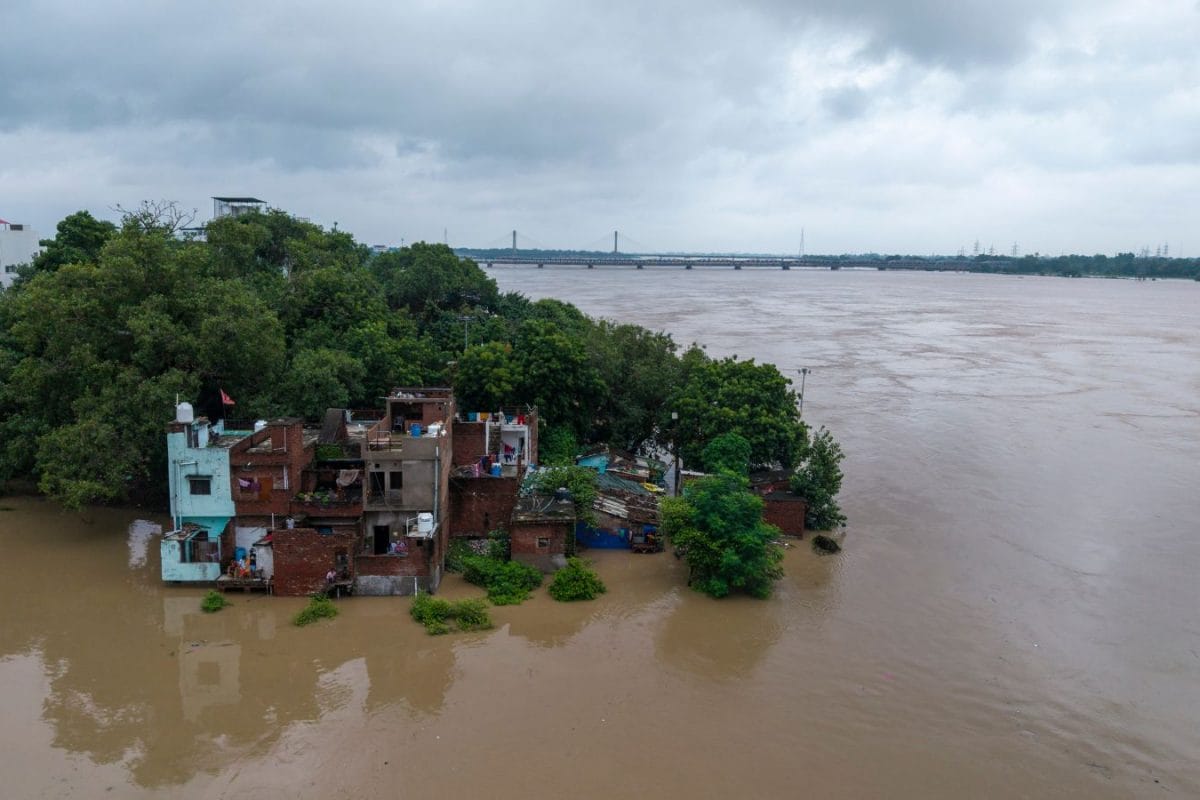

As floodwaters continue to inundate Uttar Pradesh, submerging approximately 400 villages and causing at least 12 deaths in a single day, a heated political blame game has erupted. The disaster, which has impacted over 84,000 people across 17 districts, has triggered a flurry of accusations and counter-accusations between the ruling Bharatiya Janata Party (BJP) and opposition parties, particularly the Samajwadi Party (SP).
The SP chief, Akhilesh Yadav, has launched a scathing attack on the Yogi Adityanath-led BJP government, branding it as "corrupt and ineffective" and alleging a failure to provide adequate relief to flood-affected citizens. Yadav highlighted the plight of those impacted, citing shortages of food, drinking water, and healthcare, along with a lack of sanitation and proper shelter. He questioned the government's priorities, contrasting its ability to organize grand rallies with its apparent inability to conduct effective rescue and relief operations. Yadav also pointed out the disruption of children's education and the inability to perform last rites due to the floods, further criticizing the absence of BJP leaders in addressing the crisis.
The BJP, however, has refuted these claims and asserted its commitment to assisting those affected by the natural calamity. Chief Minister Yogi Adityanath has stated that relief efforts will continue until every individual receives the necessary assistance, emphasizing transparency and sensitivity in the ongoing operations. The government has deployed ministers to oversee relief efforts, visit flood-affected areas, and interact directly with victims. These ministers are tasked with ensuring the timely and uninterrupted distribution of relief materials.
In response to the crisis, the Uttar Pradesh government has initiated a multi-pronged approach, deploying National Disaster Response Force (NDRF), State Disaster Response Force (SDRF), and Provincial Armed Constabulary (PAC) teams for rescue and relief. A total of 905 flood shelters have been established to house displaced individuals, with medical teams and community kitchens providing essential support. The government has also prioritized ensuring potable water, sanitation, separate shelters for men and women, livestock care, and proper documentation at relief points. Compensation has been distributed to families whose homes were damaged, and efforts are underway to provide assistance to farmers who have suffered crop loss and land erosion.
The floods have caused significant disruption across the affected districts. In Prayagraj, rising water levels have submerged ghats, roads, and residential areas, displacing thousands and disrupting essential activities. Similarly, in Varanasi, the Ganga River has breached the danger mark, submerging ghats and affecting cremation rituals. The administration has deployed boats and motorboats to distribute relief supplies and evacuate people from flooded areas.
The political blame game underscores the challenges of disaster management and the importance of effective coordination between government agencies and local communities. As the flood situation remains critical, the focus is on providing immediate relief to those affected and implementing measures to mitigate the impact of future disasters.